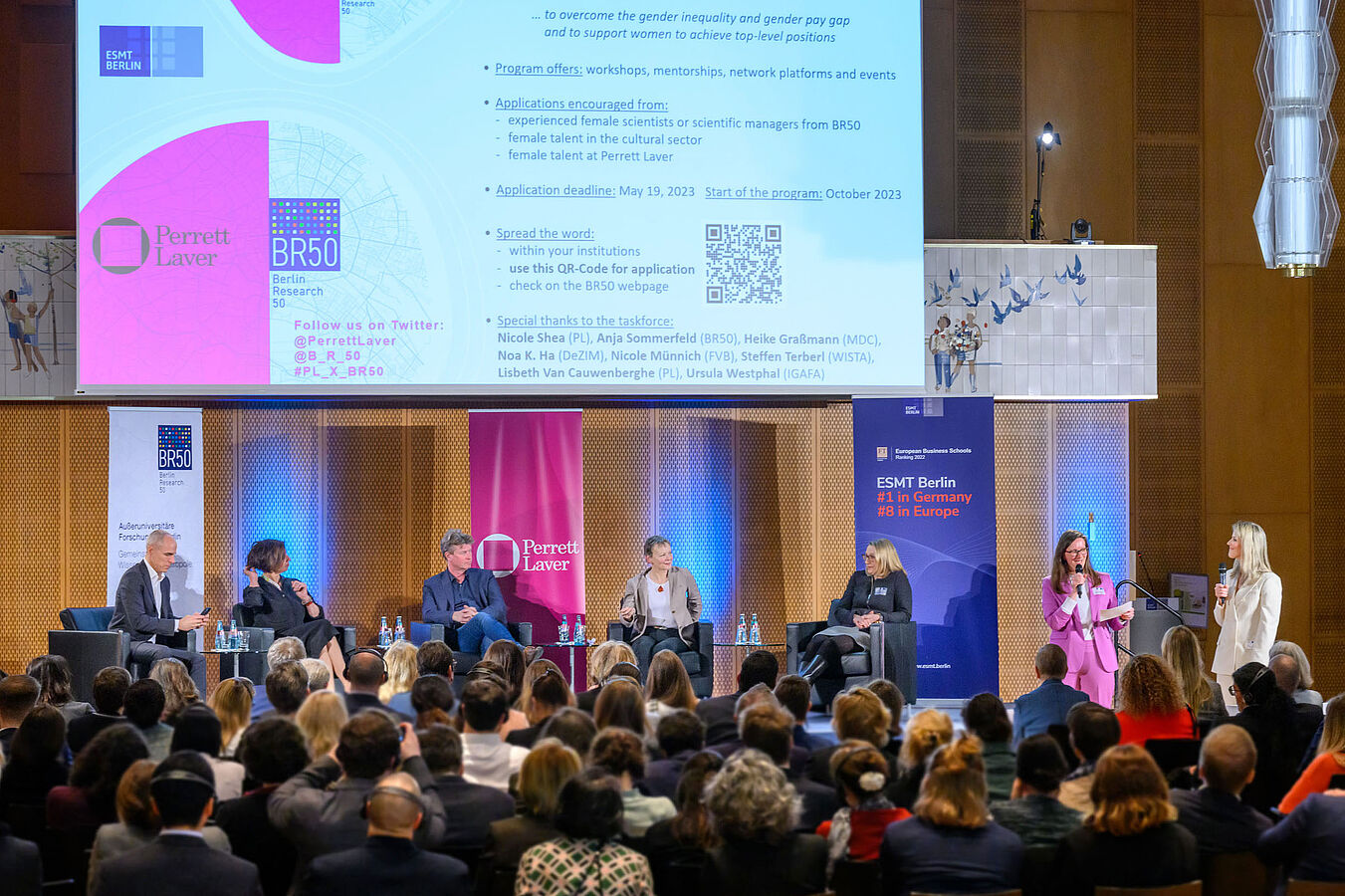In Berlin, there will be greater diversity in leadership in the future. This, at least, is what is envisaged by the planned long-term collaboration between the international executive search firm Perrett Laver and Berlin Research 50 (BR50), a network of Berlin's non-university research institutions.

ESMT BR50 Parrett Laver 2023 | Photo: David Ausserhofer
The partnership focuses not only on innovative networking and information events, but also on mentoring programs to point out the multitude of academic and non-academic career options to aspiring female talents and to help them (re)shape their career paths. The collaboration was launched with a panel discussion and the announcement of the first round of the mentoring program on March 23, 2023, at the European School of Management and Technology (ESMT) in Berlin.
The event entitled "A Wake-Up Call: Cross-Sectoral Diversity and Board Room Equality" provided a reminder of the need for more diversity. After a welcome address by ESMT President Professor Jörg Rocholl, the evening organizers Dr. Nicole Shea (Perrett Laver) and Dr. Anja Sommerfeld (BR50) outlined the cross-sectoral approaches adopted by their institutions. By engaging in mentoring and sustainable (academic) collaborations, both Perrett Laver and the BR50 have been keen to contribute to a more diverse leadership culture. Given the multiple perspectives offered by such a culture, key future challenges can be mastered more effectively. Diversity in leadership is not limited to gender, age, and background, but also extends to the professional background of leaders.
During the pilot phase of the mentoring program, developed by Shea and Sommerfeld together with a task force, experienced and aspiring female scientists and science managers will be supported on their career paths. Besides learning about careers within the participants' own sectors, the women will also have the opportunity to participate in specific workshops, training sessions, and mentorships to explore options in other areas, such as the science-related sector, the private economy, and in public service. Bringing together women from different professional groups and backgrounds will enable them to broaden their horizons.
The highlight of the event was the distinguished panel discussion with Professor Jutta Allmendinger, President of WZB Berlin Social Science Center and Chair of BR50, Ole Bækhøj, Director of the Pierre Boulez Saal, Professor Sabine Kunst, Chair of the Joachim Herz Foundation and former President of Humboldt-Universität zu Berlin, Professor Maike Sander, Scientific Director of the Max Delbrück Center, and host Alexander S. Wolf, founder of the Foundation AusserGewöhnlich Berlin. Drawing on personal experience, the panel urged institutions to take their time in the recruitment process to invite not only the initially most promising candidates, but a larger and consequently more diverse pool. They also called for the regular evaluation and transparency of salaries and their distribution, as well as the creation of networks and targeted mentorships. The general belief was that changes in culture and systems were key to realizing equal and shared leadership positions. It is a matter of sharing responsibilities and workload, and of striking a healthy work-life balance. In that case nothing would stand in the way of diversity in leadership positions.
Anja Sommerfeld & Nicole Shea






